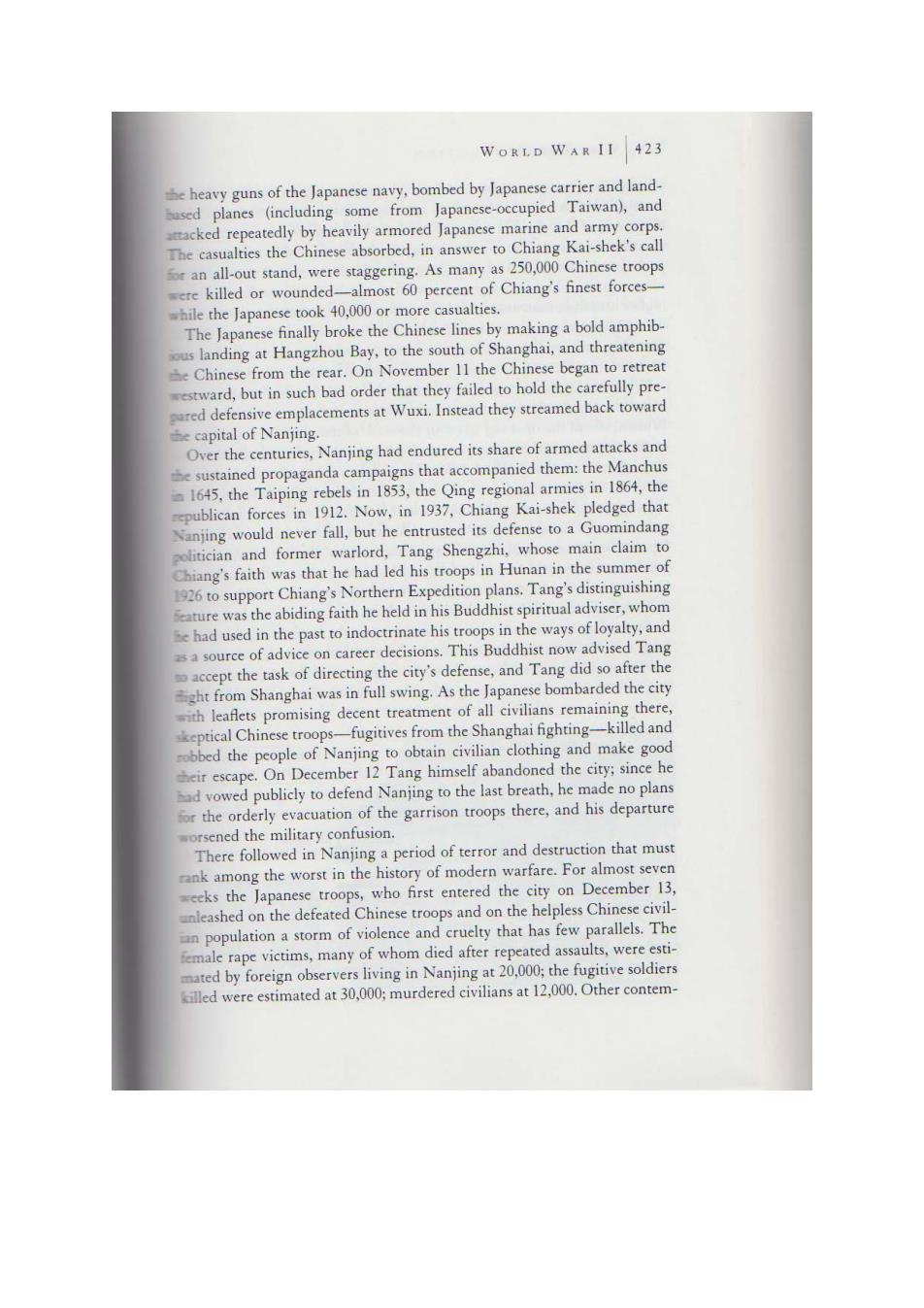正在加载图片...

WORLD WAR I I 423 heavy guns of the Japanese navy,bombed by Japanese carrier and land- ased planes (including some from Japanese-occupied Taiwan),and acked repeatedly by heavily armored Japanese marine and army corps The casualties the Chinese absorbed,in answer to Chiang Kai-shek's call an all-out stand,were staggering.As many as 250,000 Chinese troops ere killed or wounded-almost 60 percent of Chiang's finest forces- hile the Japanese took 40,000 or more casualties. The Japanese finally broke the Chinese lines by making a bold amphib- ous landing at Hangzhou Bay,to the south of Shanghai,and threatening eChinese from the rear.On November 11 the Chinese began to retreat estward,but in such bad order that they failed to hold the carefully pre- red defensive emplacements at Wuxi.Instead they streamed back toward ecapital of Nanjing. Over the centuries,Nanjing had endured its share of armed attacks and esustained propaganda campaigns that accompanied them:the Manchus 1645,the Taiping rebels in 1853,the Qing regional armies in 1864,the publican forces in 1912.Now,in 1937,Chiang Kai-shek pledged that Nanjing would never fall,but he entrusted its defense to a Guomindang olitician and former warlord,Tang Shengzhi,whose main claim to Chiang's faith was that he had led his troops in Hunan in the summer of 26 to support Chiang's Northern Expedition plans.Tang's distinguishing ture was the abiding faith he held in his Buddhist spiritual adviser,whom had used in the past to indoctrinate his troops in the ways of loyalty,and a source of advice on career decisions.This Buddhist now advised Tang accept the task of directing the city's defense,and Tang did so after the ght from Shanghai was in full swing.As the Japanese bombarded the city ith leaflets promising decent treatment of all civilians remaining there, keptical Chinese troops-fugitives from the Shanghai fighting-killed and bbed the people of Nanjing to obtain civilian clothing and make good eir escape.On December 12 Tang himself abandoned the city;since he d vowed publicly to defend Nanjing to the last breath,he made no plans orthe orderly evacuation of the garrison troops there,and his departure orsened the military confusion. There followed in Nanjing a period of terror and destruction that must ank among the worst in the history of modern warfare.For almost seven eeks the Japanese troops,who first entered the city on December 13, leashed on the defeated Chinese troops and on the helpless Chinese civil- n population a storm of violence and cruelty that has few parallels.The emale rape victims,many of whom died after repeated assaults,were esti- mated by foreign observers living in Nanjing at 20,000;the fugitive soldiers illed were estimated at 30,000;murdered civilians at 12,000.Other contem-